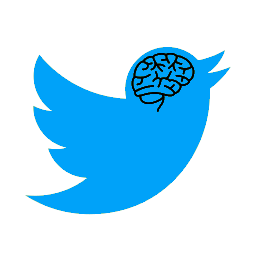I’ve started a serious mindfulness practice and it’s been really great. I’ve been practicing on and off for years, but my wife has never really given it a go. She, like many, doesn’t really feel anything or understand what it is they’re supposed to feel. What does success look like?
Different analogies work better for different people. The one that has worked particularly well for me has been two parts.
- Your thoughts can come and go, and you can observe them separately from interacting with them, like sitting on a park bench watching people walk past.
- When you inevitably get lost in thought, you can bring yourself back gently to the practice like taming a wild horse. Slowly, pulling in further as the thoughts circle around you.
This didn’t work so well for my wife, but recently we’ve stumbled on a breakthrough. Your brain is like Twitter.
You can imagine your mind like the Twitter timeline. You don’t really have much control over what tweets appear, save for a little bit of signal based on who you follow initially. Your thoughts are the same, you can control your environment and what information you’re exposed to – but which thoughts show up, you have little control over.
Further, like the Twitter timeline you have a choice. You can look at each Tweet and let it scroll past or you can engage with it. When you engage with a Tweet by clicking like, retweet or commenting that signals to the Twitter algorithm (which is optimizing for engagement, not what you’d actually like to see) that it should show you more like that. Again, the analogy holds for thoughts. Thoughts appear in your head and you can look at/observe them without engaging further. Or you can engage and your mind is likely to show you more of the same.
If something is making you angry, and you think you can stay angry without your mind constantly generating reasons why you’re perfectly justified to be angry, you are mistaken. If something your timeline is making you angry… Ok, I think you get it.
I always pick on Twitter on this blog, but the same can be said for any social media with an algorithmic controlled timeline. Facebook, Instagram, etc.
I think ultimately this is exactly why these algorithms are so addictive. Because they mimic the natural thought process so incredibly well. Just like opioids are addictive because they mimic endorphins. They’re not the same, but tell that to your brain.
